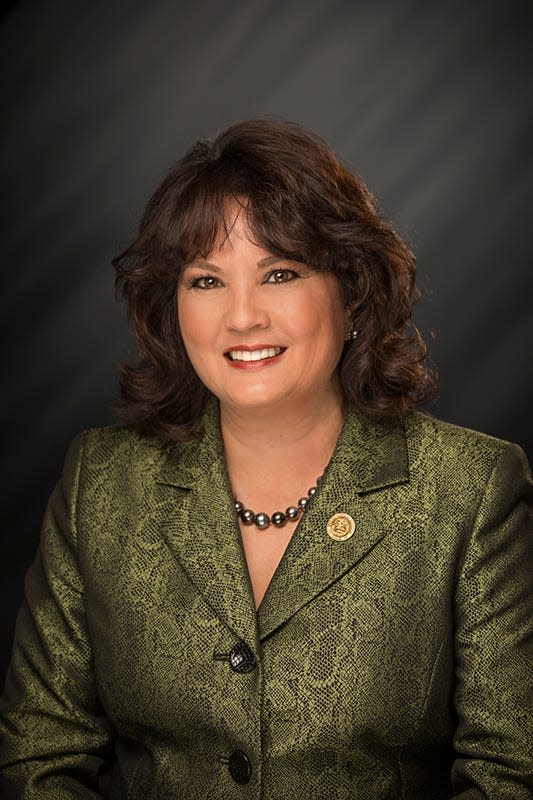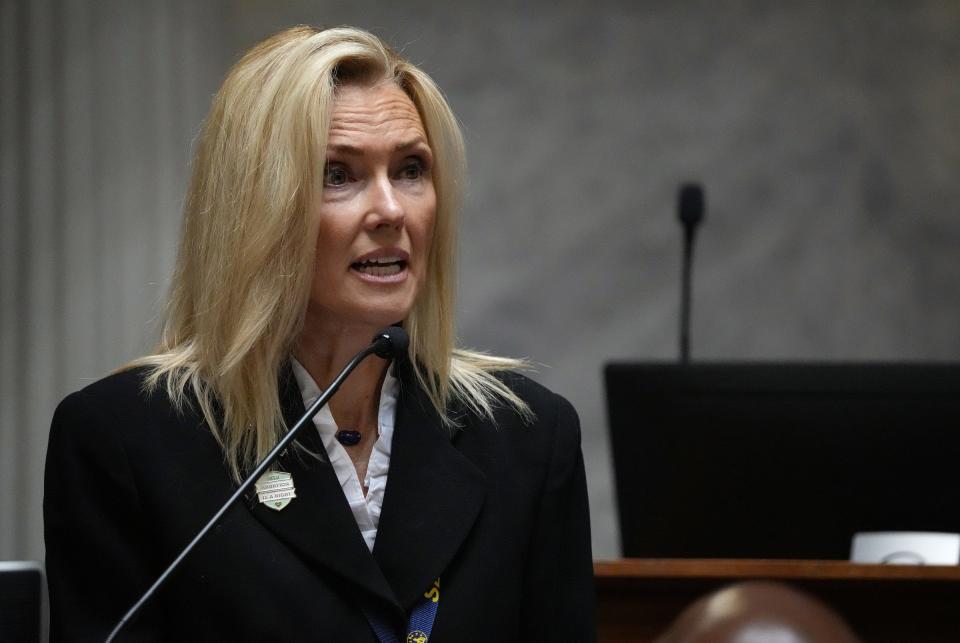Indiana lawmakers slip 'tampon tax' elimination into a Senate bill
- Oops!Something went wrong.Please try again later.
Indiana lawmakers advanced a proposal this week to eliminate sales taxes for feminine hygiene products, commonly referred to as the "tampon tax."
With little fanfare, a committee of Indiana lawmakers tacked the language onto an unrelated bill during the final weeks of the legislative session. The legislation is by no means a done deal, but the move marks a departure from the status quo in the Statehouse in which Democrats try to cut the tax and Republicans find a reason to shut them down.
This time, though, it was Republicans who offered the proposal, signaling a change of heart on the topic.
Within a minute, it was done: In the House Ways and Means committee Tuesday, Rep. Peggy Mayfield, R-Martinsville, offered the amendment to Senate Bill 256, a bill containing other fiscal measures. There was no debate. Then the committee agreed to adopt the amendment by vocal consent.
In the proposed language, feminine hygiene products include tampons, panty liners, menstrual cups, pads and any other products designed to help with menstrual hygiene.
"This one makes sense," Mayfield told IndyStar. "There are substitutes for almost everything else, women versus men. There is no substitute for this."

Mayfield called it a "very welcome amendment." Some Democrats on the committee, smiling, put their hands up as if to say, "I'm not going to say anything to mess this up."
Democrats, like Sen. Shelli Yoder of Bloomington and Rep. Carey Hamilton of Indianapolis, have championed the cause fiercely. Each year since 2022, Yoder has authored a bill to eliminate the tampon tax. Last year, Sen. Kyle Walker, R-Lawrence, joined her as a coauthor on Senate Bill 259, but the bill still didn't get past the committee stage.

“This is incredible!" Yoder wrote in a statement. "This tax is truly an extra burden on families who are already struggling to make ends meet and are sometimes forced into situations where they have to choose to buy food, gas or other essential items over menstrual discharge collection devices. Thank you to Representative Mayfield for introducing this amendment and bringing us one step closer to ending period poverty."
Democrats have also floated this proposal in the past through amendments. Republicans have often shut them down using procedural tactics, such as saying it's not relevant to the bill at hand.
Behind the scenes, some hesitancy had to do with a slippery slope argument, Mayfield said: If we exempt this, what about other products?
Mayfield herself voted against the measure in the past. She's been talking with members in her Republican caucus about it, and they decided there are few excuses left, she said.
"We failed to pass this several times it’s been offered ― why?" she said. "What is the true policy decision on why we shouldn’t do this? And failed to come up with a good reason not to."
Senate Bill 256 now heads to the House floor. After that, it'll return to the Senate, which will decide whether to approve the changes.
The odds for its survival there are low in a non-budget-writing year, in which Republican leaders have been hesitant to pass legislation with a fiscal impact. Sen. Ryan Mishler, the Senate's lead budget writer and the author of the bill, was not immediately available for an interview.
Mayfield gave it a "slightly better than average chance of crossing the finish line."
Indiana has a 7% sales tax, so eliminating the tax on period products would reduce state revenues by a little over $4 million a year, according to the Legislative Services Agency.
Twenty-four states plus Washington D.C. already exempt period products from their sales tax, according to the Alliance for Period Supplies.
The House is poised to vote on Senate Bill 256 next week.
Contact IndyStar state government and politics reporter Kayla Dwyer at kdwyer@indystar.com or follow her on X, formerly Twitter, @kayla_dwyer17.
This article originally appeared on Indianapolis Star: Will Indiana cut the tampon tax? Lawmakers slip language into a bill

